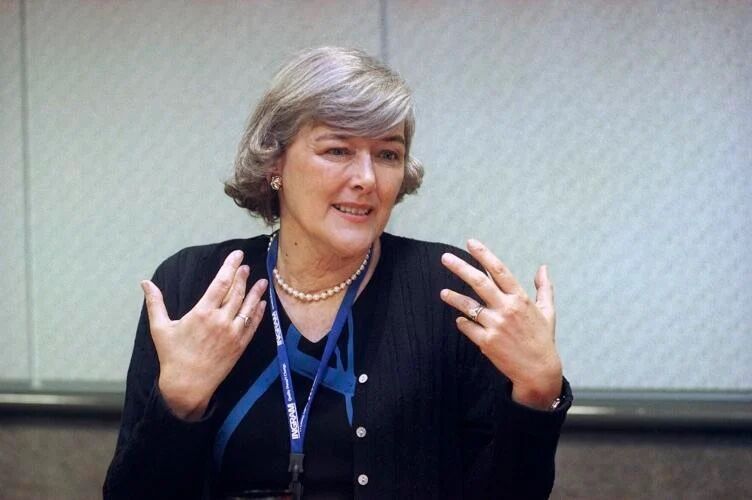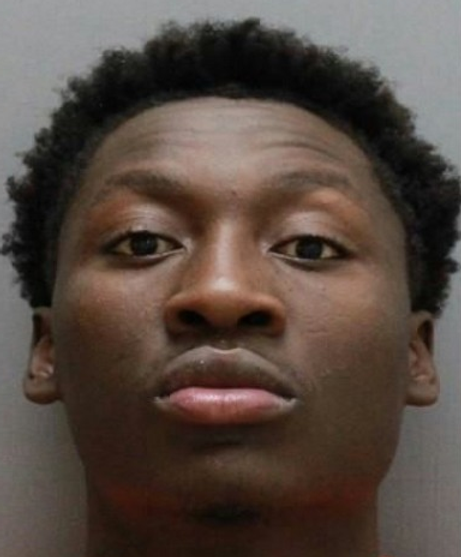Colorado Democrat Adam Frisch presses rural outreach message after DNC vice chair loss | TRAIL MIX
The Democratic National Committee won’t have former two-time Colorado congressional candidate Adam Frisch around to nudge party leadership toward a conversation he says Democrats need to have if its candidates hope to win back power nationally and in the country’s rural counties.
That’s because Frisch lost a bid for one of the DNC’s three at-large vice chair positions at the party’s winter meeting Feb. 1 near Washington, D.C.
And unlike his near-upset run against Republican Lauren Boebert in Colorado’s 3rd Congressional District in 2022, it wasn’t close.
Frisch pulled out after the first round of balloting, after receiving just five votes out of about 425 cast by DNC members.
In brief remarks announcing his withdrawal, Frisch thanked outgoing DNC Chairman Jaime Harrison and got in a pitch for Wyoming party chair Joe Barbuto, another candidate for vice chair, who soon withdrew after getting just 12 votes in the first round.
“As I’ve said before, we’ve gone from 50% of rural America to 8%. We need to figure out how to do this as well. And I want to thank everyone — I’ve been running alongside, not against everybody,” Frisch said.
The figures he cited were at the crux of Frisch’s campaign for the party position. He repeatedly pointed out that Bill Clinton won 50% of the country’s 2,000 rural counties in 1996, but the share had dropped to 25% a dozen years later when Barack Obama won the presidency — still enough to carry Iowa twice and Indiana in 2008. The Democratic presidential nominee carried just 10% of rural counties by the time Joe Biden was elected four years ago, and Kamala Harris only managed to win in 8% of them.
Frisch conceded in an interview with Colorado Politics after the party election that his bid had been something of a long shot — he didn’t mount the kind of full-blown campaign other officer candidates ran and was a newcomer to the DNC, which he described as “a very relationship-driven organization” — but the message delivered by the results was clear.
“Let’s say, chalk up some of my losses to my own personality,” Frisch said with a smile. “That’s fine, but you look at Joe Barbuto, who’s a real Wyoming person, he’s in the system, and he got 12 votes or something like that. And so my takeaway is that it confirmed what some people kind of warned me about, which is, I’m not here to say that they’re not nice, caring, patriotic people, but they’re in a bubble.”
In his brief run for the DNC position, Frish argued that he gained valuable insight into how to fix what ails his party during the two and a half years he spent talking to voters as he drove around the 3rd District. Covering 27 counties across most of the Western Slope and Southern Colorado, the seat is larger than Pennsylvania or Ohio, and except for mid-sized cities Pueblo and Grand Junction is sparsely populated enough to qualify as rural.
“The Democratic brand is so damaged in rural America, and I have a 77,000-mile road trip focus group to back that up,” said Frisch, who logged most of those miles, alongside his son Felix, behind the wheel of the family’s red pickup truck.
Frisch came within fewer than 600 votes of unseating Boebert in 2022 in the country’s closest congressional race, stunning observers after pundits, election analysts and nearly everyone on the Democratic side had written off the district as solid red. Two years later, after Boebert had high-tailed it across the state to a safer seat, Frisch lost by 5 points to first-time candidate Jeff Hurd, an attorney who cut a less confrontational and polarizing figure than the district’s Republican incumbent. Frisch was also among the top House fundraisers nationally last year, with a good share of his contributions coming in after Boebert left the race.
Even though he lost, Frisch notes that he out-performed Harris’ top of the ticket by 5 points, one of the wider margins in a House race in a year when the country as a whole trended toward Republican candidates.
Frisch said one reason he decided to run for the party position was to get a seat at a table that didn’t seem very interested in what he and other Democrats had accomplished in tough territory.
“The party — the DNC, the DCCC — no one has ever called and said, ‘Hey, how did you do that? Maybe that is something that we can learn and replicate,'” Frisch said. “It’s like the lack of intellectual or political curiosity about how the top performers in the country — a combination of those that have won and those that have come up short but vastly over-performed — is political malpractice.”
Frisch said he understood that some party regulars were probably frustrated because Democrats who run in less hospitable districts might not always toe the party line.
“Part of the over-performing is not superficially staying away from the Democratic Party, but when you focus on local issues outside of urban areas, you’re going to have some natural breaks from the Democratic Party,” he said.
Frisch said his attempt to navigate the DNC’s internal politics illuminated the party’s wider problems connecting with voters.
“I thought some people wanted to have some focus on the rural parts, and they don’t,” he said. “Again, really nice people, but there’s like 30 caucuses there, right? There’s a climate caucus and a disability caucus and an LGBTQ caucus and a Black caucus — and where’s the winning caucus, where’s the over-performing caucus? Where are the caucuses that want to talk about what do we need to do to build a winning coalition?”
The Democratic Party, he said, “is still focusing on how to divide into special subparts, and they’re not even focusing on where the coalitions need to be built. And so I just think that, with all due respect to the DNC, what they’re focused on is not what the vast majority of the voters are focused on.”
Frisch, who has been working with the Welcome Party, a group with the slogan “Growing a big-tent Democratic Party,” raised a football metaphor he used in his campaigns to describe his approach: “80% of the country is between the two 40 yard lines, right? There are a lot of loud voices on the five yard line in the Democratic Party, and of the 450 people in the DNC’s voter group, I think 80% of them are on the 10 yard line. And I’m not sure if they know that they’re on the 10 yard line.”
Frisch said he plans to keep pushing the party to do a better job connecting with rural Americans, which he noted is far from a homogenous population.
In the meantime, he had some advice for Democrats trying to take on what he termed the “crisis” of the Trump administration.
“My free advice — worth what you pay for it — is continue to focus on how this is bad for individual people, because if the Democratic Party continues to talk about the unconstitutionality, the lack of the division of powers, and they pull out constitutional law books, as some of them are, that’s losing. Do not go there,” Frisch said, adding that he didn’t mean to ignore constitutional and procedural objections, but not to make those the public face of the party’s response.
“Because the Democrats continue to show up with, as I say, with cookbooks, but Republicans are showing up with brownies,” he said. “Find sincere brownies to talk about, and don’t talk about the inner workings of how frustrated people are that Donald Trump is violating the norms.”











